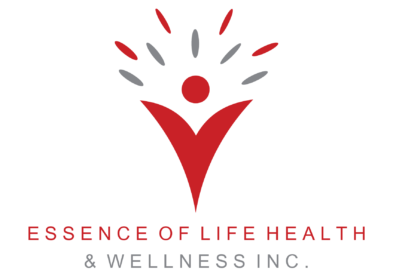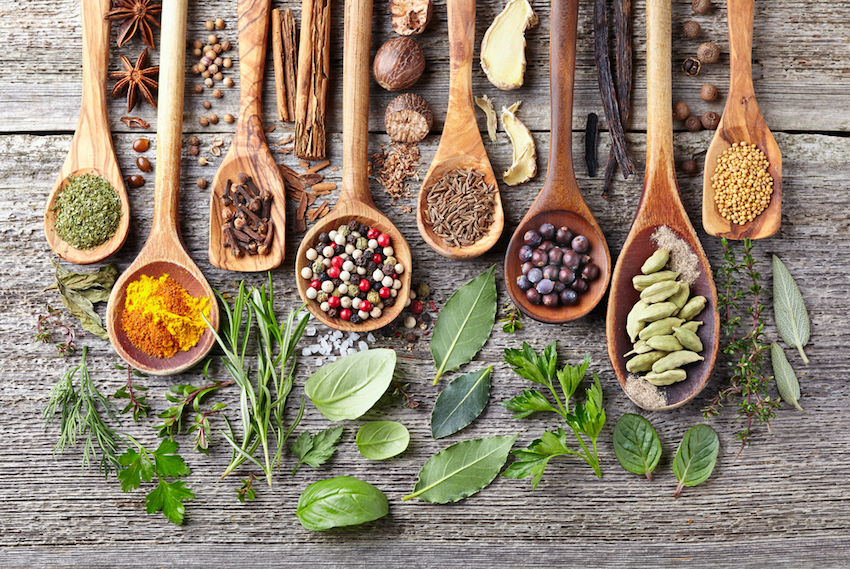Naturopathic Candida Treatment
What is Candida?
Candida is a term often applied to when a patient has an overgrowth of detrimental yeast species that can proliferate throughout your digestive system. This can result in a weakened immune system, digestion, chronic vaginal yeast infections, liver and bowel function issues and can lead to skin rashes. There are approximately 150 species of yeast in and on the human body. The most prevalent type is Candida albicans. This fungus usually inhabits the mouth, intestines and vagina.
Candida is usually kept under control by good bacteria that also make their home in the intestines, bowel and vagina. Lactobacillus acidophilus and Bifidobacteria bifidus are the predominant friendly flora that inhabit our bodies. Similar to the bacteria in yogurt these bugs make acetic acid, lactic acid and bacteriocins to help regulate the intestinal pH, enhance immune system controls and help maintain gastrointestinal health. They are also known to inhibit overgrowth of Candida, help reduce food intolerance, provide important nutrients such as vitamins and lower cholesterol by preventing its absorption.
Symptoms of Candida Overgrowth
- Inability to focus, Poor memory, Brain fog, Irritability, Anger, Dizziness, Depression, Crying spells, Panic attacks, Low libido, Persistent extreme fatigue
- Hyperactivity, Cravings for sweets and alcohol, Insomnia, Poor coordination.
- Acid reflux, Bloating, Flatulence, Nausea, Diarrhea, Constipation, Stomach cramps, Indigestion, Burping after meals, Mucus in stool, Hemorrhoids, Itching anus.
- Acne, Cysts, Hives, Night sweats, Psoriasis, Eczema, Dermatitis, Fungal infections of the nails & skin, Athlete’s foot, Body odor.
- Thrush (white coating on tongue), Swollen lower lip, Halitosis, Metallic taste in mouth, Bad breath, Canker sores, Bleeding gums, Cracked tongue.Persistent cough, Mucus in throat, Sore throat,
- Sinus congestion, Chronic post-nasal drip, Flu-like symptoms, Hay fever symptoms, Sinusitis, Asthma.
- Eye pain, Itchy eyes, Sensitivity to light, Blurred vision, Bags under eyes, Ringing in the ears, Ear infections.
- Recurring yeast infections, Recurring UTI’s (urinary tract infections), Cystitis (inflammation of the bladder), PMS & menstrual irregularities, Fungal rash.
- Frequent colds and flu, Allergies, Sensitivities to food, fragrances and chemicals.
- Inability to lose weight, Water retention, Weight loss.
- Headaches, Heart palpitations, Chronic body pain and/or joint pains, Muscle aches and stiffness.
What Causes Candida?
- Candida is caused by an opportunistic microflora which over proliferates in the body when the conditions are right, such as an acidic, damp and sugary environment.
- When people take a course of antibiotics the entire beneficial balancing flora in the bowels is destroyed and if we don’t replant these good bacteria then bloating and digestive symptoms become present constant emotional stress
- Poor eating habits including excessive consumption of foods and beverages high in sugar
- Long term use of the contraceptive pill
- Incomplete digestion commonly due to rushing meals.
- Overuse of certain medication like antibiotics, antacids, corticosteroids and hormone therapy (including the contraceptive pill) predispose individuals to yeast overgrowth or candidiasis
- Excessive alcohol consumption
- Over consumption of sweet foods and foods high in simple carbohydrates e.g. white flour products, cakes, biscuits, refined sugar, honey, cordials, soft drinks, fruit juice and certain fruits, particularly dried fruit, can provide fuel for Candida to overgrow in the intestines
- Eating too fast
Effects of Candida Overgrowth
- Over time a persistent intestinal overgrowth can result in Candida invading the mucous membranes lining the gastrointestinal tract, particularly in the lower intestines and colon. This process severely interferes with normal mucosal health and produces microscopic holes in the membranes allowing yeast, bacteria, undigested food particles, pollen, environmental pollutants and other material to enter the bloodstream. This condition is known as “leaky gut syndrome”.
- If this complaint is not addressed it may contribute to further complications such as:
- Skin rashes
- Fungal infections
- Depressed immunity
- Systemic candida which affects the lungs, liver, kidneys and brain
- Serious allergies, food sensitivities, asthma and sinusitis
- Digestive complaints such as colitis, diarrhoea, constipation, cramps, bloated stomach, flatulence and bad breath
- Genital thrush, prostatitis, pre-menstrual complaints (excessive bleeding and cramps) and low libido
- Fatigue, anxiety, nervousness, inability to think (foggy thinking), decreased concentration, irritability, headaches and depression
- Excessive sweet cravings, weight gain and hypoglycaemia (low blood sugar levels)
- Chemical sensitivities
What is the Natural or Functional Medicine treatment approach for Candida?
- To address Candida successfully, you need to adhere to a number of steps simultaneously in order to make sure the candida has no way of surviving. Again, first and foremost we must isolate what species has overgrowth with diagnostic testing so that we succeed in killing it with the right medicines. However, diet also plays an extremely vital role:
- Starving it: Avoid sugar, yeast, mushrooms, alcohol, vinegar, all fermented foods, wheat, white flour products – really any grains. Sugar is the fuel source of the yeast, namely foods rich in sugar and refined carbohydrates including concentrated sugars, soft drinks, cordials, alcohol, sweets, most fruit, dried fruits, white flour products and yeast-containing products. These burden the immune system which is overburdened and struggling to overcome the yeast infection, they also feed the bacteria. Replace these with whole foods that are rich in complex carbohydrates and micronutrients including vegetables, well cooked legumes, whole nuts and seeds and protein such as eggs, antibiotic-free/ organic meats. “Sweet feeds yeast” and “bitter is best” are two catch phrases to remember when considering what to eat.
- Killing it: Using anti-microbial herbs that are targeting to the correct strain, and foods such as garlic, onions, thyme, goldenseal, wormwood, dandelion, andrographis, rhubarb and pau d’arco either in the diet or as a supplement. Most of these herbs are also anti-parasitic, anti-bacterial and also protect the liver.
- Feeding it: Reintroducing beneficial gut flora such as taking a good quality probiotic supplement – in particular S. Boulardi. Improve the immune system by eating large amounts of fresh fruit and vegetables, nuts, seeds, whole grains, fish, bitter foods, lemon juice, vegetable juices: supplements such as echinacea, olive Leaf, Vitamin C, garlic. Repair normal gastrointestinal membrane integrity and heal “leaky gut syndrome” (which can result from the inflammation caused by the infection) with glutamine rich foods such as celery, spinach, dandelion greens, lettuce, parsley, brussels sprouts and carrots.
- Lifestyle factors for Candida
- Support liver, digestion and detoxification processes by eliminating tea, coffee, alcohol, sugar, gluten, dairy, carbonated drinks
- Candida is more likely to develop in warm, moist environments. Try to wear cotton rather than nylon underwear
- Don’t overeat, and even allow yourself to get a little hungry before eating
- Chew very well, combine your foods properly, and be relaxed at meal times
- Natural remedies for Candida
- Probiotics help to reinocculate the gut with good bacteria and produce antifungal enzymes. Many conditions of Candida are directly contributed to the wrong bacteria being housed in the bowels, by taking an acidophilius supplement such as this it helps to correct this imbalance and reduce symptoms such as bloating, thrush and constipation
- Improve digestion by increasing bitters such as Digestive enzymes and herbs such as Gentian, Meadowsweet and Dandelion
Diet Tips
- Increase water intake to flush the kidneys and bowels of wastes and acidity. Introduce herbal teas to increase your water intake and cleanse the digestion. Teas such as Peppermint, Ginger, Echinacea, Lemongrass and Fennel are ideal
- Increase the amount of garlic in your diet as garlic and onions as they are antimicrobial due to the sulphur content. Also include ginger and chilli in the diet as these are beneficial to encourage digestion and cleansing and fight the infection
- Have a vegetable juice each day such as carrot, celery, ginger and beetroot
- Include more bitter foods in your diet such as lemon, radicchio, arugula, endive and beet greens
- Eliminate simple sugars from your diet such as sugar, honey, cakes, breads, chocolate, biscuits and bakery type foods
- Eliminate fermented foods from your diet such as mushrooms, vinegar, apple cider vinegar, alcohol, wine, condiments, bread and yeasts
- Yoghurt containing live probiotics such as acidophilus and bifidus is also a valuable addition to the diet
- A diet free of yeast and sugar will help your body to fight Candida infection. Avoid bread, alcohol, mushrooms and yeast spreads, as well as sugar in any form. (Hint – when checking ingredient lists, words ending in -ose, such as maltose, lactose and glucose, generally refer to forms of sugar)
Now that you know all of that and you are ready to eradicate Candida from your system, Click Here to check out our Candida Cleanse that will get your body back in order.


